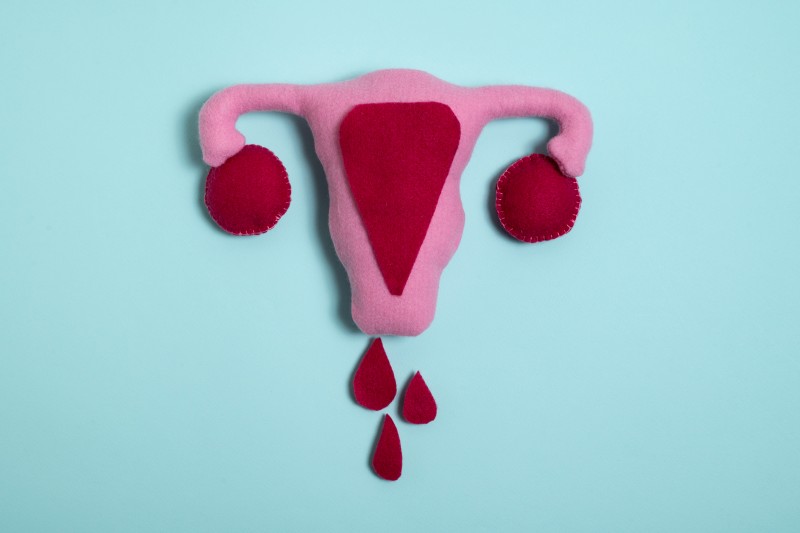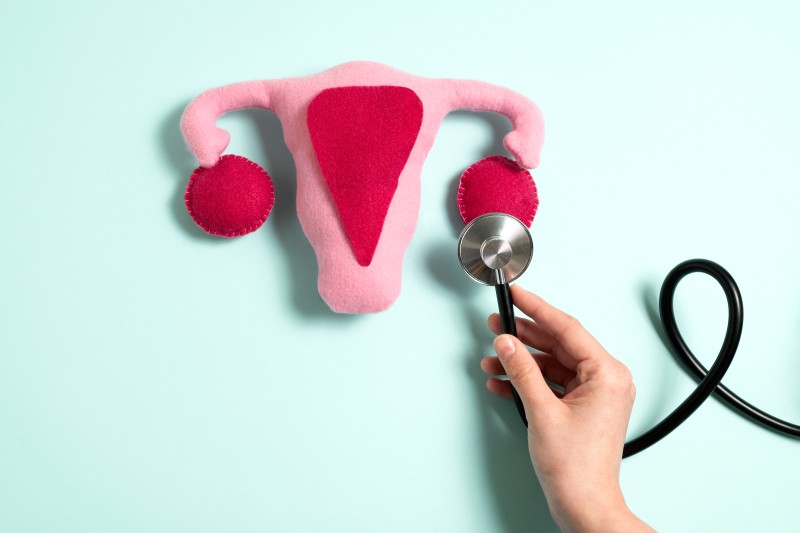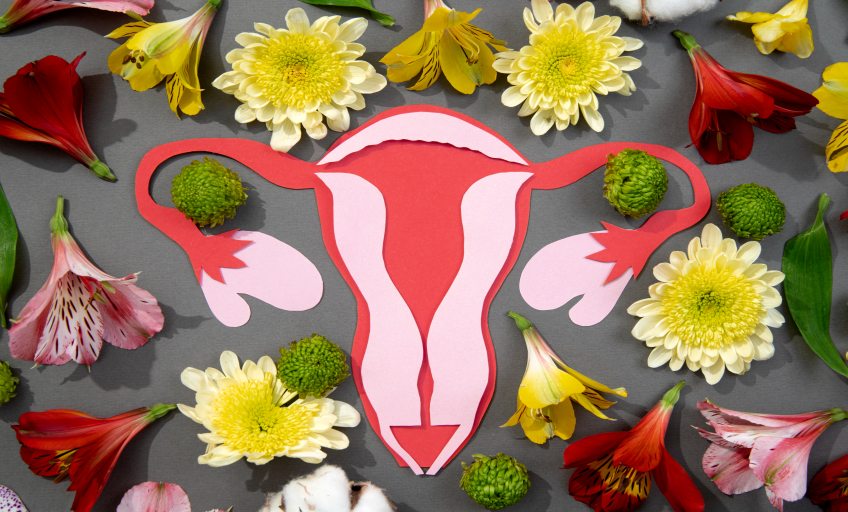Key Takeaways
- Early menopause is reaching menopause before age 45.
- It may occur because of natural causes, medical treatments, and certain infections.
- Its symptoms include hot flashes and night sweats, irregular periods and mood changes.
- Have a balanced diet, exercise regularly, and manage stress to manage the symptoms of early menopause.
Menstruation, or menstrual period, is when the uterus line sheds monthly, causing bleeding. It prepares a woman’s body for a possible pregnancy. Its symptoms include cramps or aches in the lower abdomen or back, bloating, mood swings, and fatigue that can be unpleasant. After menopause, a woman stops having menstrual periods and cannot get pregnant, which takes a toll on her body and mind.
What you need to know:
- What is early menopause?
- Causes of early menopause
- 4 Symptoms of early menopause
- Treatment options for early menopause
- Managing the impact of early menopause
What is early menopause?
Premature and early menopause are conditions where a woman has menopause at an age earlier than is expected. Premature menopause occurs before age 40, and early menopause before age 45. Early menopause starts when a woman’s periods become irregular or stop before the expected age, whereas natural menopause generally happens around age 51. If you have gone 12 straight months without a period, you have gone through menopause.
Causes of early menopause
Some early menopause causes include surgery, cancer treatment or some health conditions. But, sometimes, the reason is unknown. Any factor that harms the ovaries or disrupts estrogen production can lead to menopause.
Natural causes
Some natural causes of early menopause include:
- Family history of menopause at an early age,
- Getting your first period before age 11,
- Chromosomal abnormalities like Fragile X (an inherited genetic disease that causes intellectual and developmental disabilities) or Turner’s syndrome (being born with an incomplete chromosome) and
- Autoimmune diseases like rheumatoid arthritis (where your immune system attacks the tissue lining the joints on both sides of your body), Crohn’s disease (an inflammatory bowel disease that causes your digestive tract to become swollen and irritated) or thyroid disease.
Medical treatments
Some medical treatments can cause early menopause:
- Chemotherapy or radiation to treat cancer
- Surgery that removes your ovaries
- Surgery that removes your uterus (hysterectomy)
Other factors
Early menopause causes can sometimes include the following lifestyle factors:
1. Smoking
Long-term or regular smokers may experience menopause sooner as smoking affects estrogen, contributing to early menopause. 11.6% of women in Delhi have experienced menopause prematurely, against the national average of 8.06%.
2. Certain infections
Some infections can also be the cause:
- Women with HIV who don’t have their infection well-controlled with medication may experience early menopause.
- Mumps, which causes painful swelling in your parotid salivary glands, is the most common infection linked to early menopause.
- TB or tuberculosis can also result in early menopause.
4 Symptoms of early menopause
Early menopause can occur when you start having irregular periods or periods noticeably longer or shorter than your typical cycle. Some possible early menopause symptoms include:
1. Hot flashes and night sweats
During menopause, you may experience a sudden feeling of warmth that spreads over your body, called hot flashes. Also, drenching night sweats that soak through your clothes and bedding and disturb your sleep are typical.
2. Irregular periods

In the years leading up to your final menstrual period, you may experience irregular cycles. Changes such as longer or shorter cycles, spotting between periods, or variations in vaginal bleeding are often early signs of menopause.
3. Vaginal dryness and discomfort
Usually, the vaginal lining stays moist with fluid, keeping it thick and elastic. Vaginal dryness occurs when the tissues become dry, thin, and lack proper moisture. It is a painful symptom of early menopause caused by low estrogen levels. It can cause pain during exercising, urinating, sitting, and sexual intercourse.
4. Mood changes
Early menopause can result in mood changes. Irritability, mood swings, depression, anxiety, difficulty sleeping or insomnia are some possible emotional symptoms you might face.
Treatment options for early menopause

Early menopause treatments can vary depending on the underlying cause.
Hormone Replacement Therapy (HRT)
Hormone replacement therapy (HRT) is recommended only if it is safe (not if you have had breast cancer). HRT replaces some of the lost hormones in your body, reducing the side effects and symptoms of menopause and your risk of health conditions caused by early menopause. HRT is prescribed until a person turns 51 years old (when most people reach menopause). Consult your doctor to avoid risks before starting HRT.
Lifestyle modifications
While you cannot prevent menopause, you can modify your lifestyle to deal with the changes your body goes through.
1. Diet and exercise
Eat healthy and exercise regularly to manage the symptoms of menopause. Consider doing aerobic exercises like walking, jogging, cycling, swimming, or dancing. Also, incorporate strength training exercises with bodyweight (planks, squats, push-ups) and weights using kettlebells or dumbbells. Ensure you eat a balanced diet with various fruits, vegetables, whole grains, and protein. Also, limit caffeine and alcohol.
2. Stress management
To manage stress, practise relaxation techniques like:
- Mindfulness meditation, yoga, progressive muscle relaxation, and deep breathing exercises
- Journaling or writing down your thoughts and feelings to process emotions and identify potential stress triggers
- Spending time with supportive friends and family or joining a support group
Managing the impact of early menopause
Managing the impact of early menopause requires a proactive, holistic approach that addresses physical, emotional, and psychological changes. While hormone replacement therapy (HRT) and lifestyle modifications can help alleviate symptoms, as mentioned, maintaining bone and heart health, managing mood changes, and prioritizing sexual health are essential as well. Consult your doctor and manage symptoms seamlessly. Navigate early menopause effectively and maintain a high quality of life with the right strategies and support for your overall well-being.
Stay tuned to the Activ Living Community. Keep up to date with the latest health tips and trends through expert videos, podcasts, articles, and much more on nutrition, fitness, mindfulness, and lifestyle conditions like Asthma, Blood Pressure, Cholesterol, and Diabetes. Activ Living ke saath sahi sehat ki shuruat ABHI karo.
You may also be interested in the following blogs:
- Say Goodbye To Perimenopause Woes With These 3 Innovative Treatments
- 3 Effective Exercises During Periods: What You Need To Know
Popular Searches
How to lower blood pressure | Fruits good for liver | Unhealthy foods | Ragi Benefits | Basal Metabolic Rate | Acupressure points for High Blood Pressure | Ayurvedic medicine for blood pressure | How to control cholesterol at home | Homeopathy for Asthma | Biological Age | Home remedies for TB | Natural beta blockers | Negative effects of internet | Types of walking | Blood pressure calculator | Blood sugar calculator | BMI Calculator





 1800-270-7000
1800-270-7000






